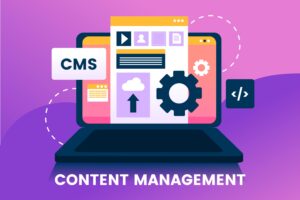Introduction
Websites today need to be more than just visually appealing; they need to be lightning-fast. Numerous studies confirm that even a one-second delay in page load time can significantly drop conversions, increase bounce rates, and lower search engine rankings. Are you frustrated with a sluggish website that’s costing you customers? WordPress performance optimisation is critical to unlocking faster speeds, happier visitors, and a noticeable boost to your bottom line.
Slow Sites = Lost Opportunities
- Impatient Customers:
In today’s fast-paced digital world, users need more patience for websites that take too long to load. Studies show that over 50% of internet users expect a website to load in less than 3 seconds. If your website fails to meet this expectation, you risk losing potential customers and missing out on valuable leads. When a website is slow, users become frustrated and likelier to abandon it before even exploring its content. This can significantly impact your conversion rates and overall business performance.
- Bad for Search Rankings:
Search engines like Google prioritise the user experience, and one key factor they consider is website speed. Slow-loading websites are often penalised in search engine rankings, making it harder for them to gain visibility and attract organic traffic. Google’s Page Experience Update, implemented in 2021, further emphasises the importance of website speed as a ranking factor. Websites that load quickly are more likely to rank higher in search results, increasing organic traffic and potential customers.
- Damaged Brand Perception:
The speed of your website can have a significant impact on how users perceive your brand. A slow-loading website can create a negative impression, making users associate your business with outdated technology or unprofessionalism. This can damage your brand reputation and make it harder to attract new customers.
- Wasted Ad Budget:
A slow-loading website can undermine your return on investment if you invest in paid advertising, such as Pay-Per-Click (PPC) campaigns. When users click on your ads but are greeted by a slow-loading page, they are likelier to bounce and leave your website without taking any desired action. This results in wasted ad spending and reduced effectiveness of your advertising efforts.
Core Areas of WordPress Performance Optimization
Image Optimization:
- Uncompressed images can significantly increase website bloat, leading to slow load times. Compressing images using tools like TinyPNG or ImageOptim reduces their file size without compromising quality.
- Resizing images to appropriate dimensions before uploading them to your website is crucial. Oversized images slow down page loading and waste bandwidth.
- Using image formats like WebP, supported by most modern browsers, can further reduce image file size while maintaining quality.
Smart Caching:
- Caching mechanisms store pre-generated versions of your website’s pages in temporary storage, reducing the need for the server to generate them every time a user visits.
- Various caching techniques exist, including browser caching, server-side caching, and content delivery networks (CDNs).
- Implementing caching strategies reduces server load, improves website performance, and enhances user experience.
Optimised Hosting Environment:
- Choosing the right hosting plan is critical for website speed. Look for a plan with sufficient resources, such as CPU, RAM, and storage, to handle your website’s traffic.
- Performance-focused hosting features, like SSD storage and HTTP/2 support, can significantly improve website load times.
- Regularly monitoring your website’s performance and upgrading your hosting plan as needed ensures optimal speed and reliability.
Streamlining Plugins:
- Using too many plugins or poorly coded ones can speed up your website. Regularly audit plugins and remove any that are not essential.
- Prioritising efficiency when selecting and configuring plugins can make a noticeable difference in website speed.
- Consider using lightweight alternatives to popular plugins or implementing custom solutions to reduce plugin bloat.
Minifying Code:
- Minifying code removes unnecessary whitespace, comments, and more from HTML, CSS, and JavaScript files. This reduces their file size without affecting their functionality.
- Minified code loads faster and improves website performance.
- There are various tools and plugins available to minify code automatically.
Tools of the Trade
- Speed Testing:
- To get a comprehensive view of your site’s speed, use a combination of tools like GTmetrix, Google PageSpeed Insights, and WebPageTest.
- Benchmark your current speed and set specific goals for improvement.
- Image Optimization Plugins:
- Smush, Imagify, and others offer lossless compression techniques to reduce image size without sacrificing quality.
- Enable automatic image optimisation during upload for a seamless workflow.
- Consider using WebP images, which provide smaller file sizes with comparable visual quality.
- Caching Plugins:
- WP Rocket, W3 Total Cache, and WP Super Cache are popular caching plugins that offer various caching mechanisms.
- Implement browser caching, server-side caching, and database caching for optimal performance.
- Configure caching rules to exclude specific pages or elements if needed.
- Professional Analysis:
- Consider hiring a professional WordPress speed optimisation service for complex sites with persistent performance issues.
- A professional can conduct a thorough analysis to identify and fix bottlenecks like inefficient plugins, database issues, or server-side problems.
- Additional Tips:
- Minify CSS and JavaScript files to reduce their size and improve loading times.
- Lazy loads images and videos only to load them as they come into view.
- Minimise the number of redirects on your site, as each redirect adds a delay.
- Use a content delivery network (CDN) to distribute your site’s content across multiple servers for faster delivery.
- Keep your WordPress core, plugins, and themes up to date to take advantage of performance improvements and security patches.
The Business Benefits of a Faster WordPress Site
- Conversion Boost:
A faster WordPress site can significantly improve conversion rates. When your site loads quickly, visitors are more likely to stay on the page, browse your products, and make a purchase. Studies have shown that a 1-second delay in page load time can result in a 7% decrease in conversions. By optimising your WordPress site for speed, you can reduce bounce rates, increase session duration, and boost your overall sales.
- SEO Advantage:
In addition to improving user experience, a faster WordPress site can help you rank higher in search engine results pages (SERPs). Google’s page speed algorithm is a ranking factor, so having a fast site can give you a significant edge over your competitors. When your site loads quickly, it sends a positive signal to Google, which can help you climb the SERPs and attract more organic traffic.
- Enhanced User Experience:
Visitors to your WordPress site expect it to load quickly and smoothly. A slow website can be frustrating and discouraging, leading to higher bounce and lower conversion rates. By optimising your site for speed, you can create a positive user experience that will keep visitors engaged and coming back for more.
- Competitive Edge:
In today’s competitive online environment, it’s essential to have a website that performs well. A faster WordPress site can give you a significant competitive advantage by providing a better user experience, improving your search engine rankings, and boosting your conversion rates. By investing in website speed optimisation, you can outpace your competitors and strengthen your position in the market.
When to Invest in Professional Optimization
DIY Limitations:
- Lack of Expertise: Optimizing a website for performance requires specialised knowledge and experience. With the necessary expertise, you may be able to identify and address all the factors contributing to slow website speed.
- Time-Consuming: Website optimisation can be time-consuming, especially for larger, more complex websites. Hiring a specialist may be a better option if you need more time for optimisation.
- Limited Resources: Smaller businesses or organisations with limited resources may need more money or in-house expertise to handle website optimisation effectively. In such cases, outsourcing to a professional can be more cost-effective.
Complex Websites:
- E-commerce Sites: E-commerce websites often have large product catalogues, high-resolution images, and complex checkout processes. These factors can contribute to slow website speed if not optimised correctly.
- Membership Sites: Membership sites typically have a lot of dynamic content, such as user profiles, forums, and messaging systems. This content can also slow down the website if not optimised properly.
- Feature-Heavy Sites: Websites with many interactive features, such as sliders, animations, and video players, can also suffer performance issues if they are not optimised properly.
Time vs. Results:
- Opportunity Cost: If you spend significant time optimising your website and are still looking for the desired results, you could lose out on potential business opportunities.
- Professional Expertise: Professional website optimisation services can help you achieve faster results and improve your website’s performance more effectively.
Maximum ROI:
- Increased Conversion Rates: A faster website can increase conversion rates, as users are more likely to complete a purchase or take a desired action if the website loads quickly.
- Improved Customer Experience: A well-optimized website provides a better user experience, which can lead to increased customer satisfaction and loyalty.
- Better Search Engine Rankings: Website speed is a ranking factor in search engines, so a faster website can help you improve your search engine rankings and attract more organic traffic.
Supercharge Your Website, Supercharge Your Results
Think of performance optimisation as an investment in the very heart of your online presence. A well-optimized WordPress site creates a delightful user experience that translates into higher engagement, increased sales, and a thriving online presence.
Ready to Transform Your Website’s Speed?
Doctor WordPress delivers expert WordPress performance optimisation services. Start turning frustrated visitors into loyal customers.








